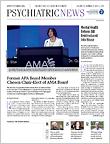The link between a healthy mind and a healthy heart is well established, but new findings published in the Journal of the American Heart Association in May have added a new wrinkle to the mind-body connection, finding that long-term depression can elevate the risk of stroke even after the symptoms go away.
These results came from a study that assessed over 16,000 adults (aged 50 and up), who participated in the Health and Retirement Study between 1998 and 2010. As part of the study, participants were interviewed every two years about symptoms of depression, history of stroke, and stroke risk factors.
Similar to previous findings, the authors found that sustained depression increased the risk of stroke; compared with people who showed low or no depressive symptoms at two consecutive interviews, people with high depressive symptoms were more than twice as likely to have a first stroke during the subsequent two years.
Surprisingly, however, participants who had symptoms of depression at the first interview but not at the second still had a 66 percent greater risk of stroke compared with people with no depression. In contrast, people who reported symptoms of depression only during their second interview (the recent-onset group) did not show an elevated stroke risk.
“We were surprised to see that the onset or remission of depressive symptoms takes more than two years to influence stroke risk,” lead study author Paola Gilsanz, Sc.D., told Psychiatric News. “But it’s an important finding, as depression is not static, and both clinicians and patients want to know how changes in depressive symptoms affect overall health.”
Study coauthor Maria Glymour, Sc.D., an associate professor in epidemiology and biostatistics at the University of California, San Francisco, pointed out that understanding how changes in depression may affect stroke risk also provides clues as to which pathways are responsible for this risk.
“It has been speculated, for example, that depression may increase the incidence of atrial fibrillation (irregular heartbeats), which would increase short-term stroke risks, but our data do not support this mechanism, at least in older adults,” she said.
The two-year lag suggests rather that depression influences vascular health via long-term mechanisms brought on by biological and/or behavioral changes in depressed individuals.
Jesse Stewart, Ph.D., an associate professor of psychology at Indiana University-Purdue University Indianapolis (IUPUI), told Psychiatric News, “These findings reaffirm that people with depression should not lower their guard once their symptoms go away.”
But he also cautioned that this study assessed people only two years after a change in depression status, and that in the longer term, symptom remission may have more pronounced cardiovascular benefits.
Stewart noted one of his own studies that compared the effects of providing either collaborative or usual care to depressed people over an eight-year period (
Psychiatric News, March 19, 2014). “In our study, we found few differences between collaborative or usual care in terms of stroke risk over the first two years, but after eight years, collaborative care for depression significantly lowered stroke risk.”
Gilsanz agreed that there are plenty of questions left to answer regarding the relationship between depression and stroke, including whether younger people whose symptoms of depression have subsided also are at a greater risk of stroke, and the factors mediating the association.
“If we find that the patterns of hypertension risk mirror stroke risk in people with remitted depression, it might point to high blood pressure as the key mediator in this process,” she said.
Gilsanz said she is also interested in how depression remission due to medication, psychotherapy, or spontaneous remission influences stroke risk.
This work was supported by multiple grants from the National Institutes of Health, the American Heart Association, and the Initiative for Maximizing Student Development. ■
“Changes in Depressive Symptoms and Incidence of First Stroke Among Middle-Aged and Older U.S. Adults” can be accessed
here.


